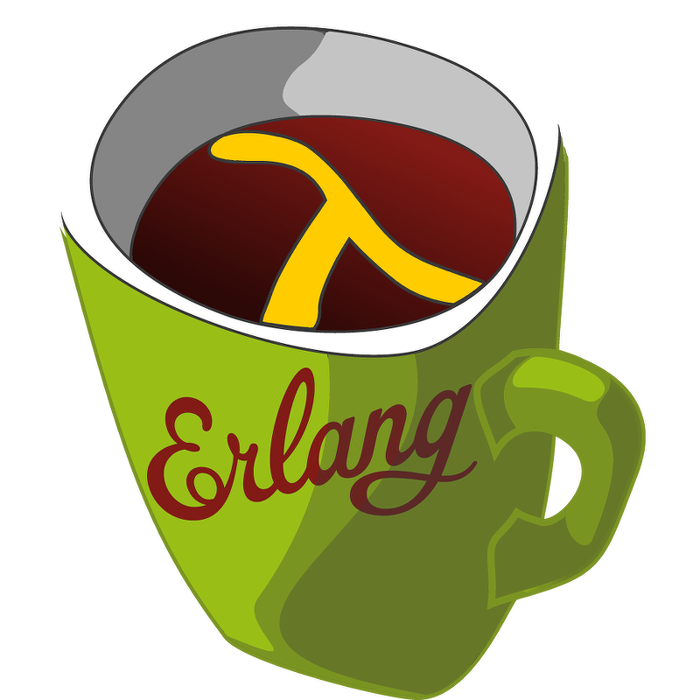LFE Friday - c:regs/0
 This week's LFE Friday was translated with permission from the
Erlang Thursday
series by Steven Proctor.
This week's translator: Robert Virding.
This week's LFE Friday was translated with permission from the
Erlang Thursday
series by Steven Proctor.
This week's translator: Robert Virding.
Today's LFE Friday continues looking at the c module, and looks at c:regs/0.
c:regs/0 displays information about the registered processes on the current node, such as process name, process id, the number of reductions1 performed, and more.
> (c:regs)
** Registered procs on node nonode@nohost **
Name Pid Initial Call Reds Msgs
application_controlle <0.7.0> erlang:apply/2 404 0
code_server <0.12.0> erlang:apply/2 126526 0
erl_prim_loader <0.3.0> erlang:apply/2 171328 0
error_logger <0.6.0> gen_event:init_it/6 223 0
file_server_2 <0.20.0> file_server:init/1 84 0
global_group <0.19.0> global_group:init/1 53 0
global_name_server <0.15.0> global:init/1 45 0
inet_db <0.18.0> inet_db:init/1 196 0
init <0.0.0> otp_ring0:start/2 2392 0
kernel_safe_sup <0.31.0> supervisor:kernel/1 56 0
kernel_sup <0.11.0> supervisor:kernel/1 1860 0
rex <0.14.0> rpc:init/1 21 0
standard_error <0.22.0> erlang:apply/2 9 0
standard_error_sup <0.21.0> supervisor_bridge:standar 34 0
user <0.25.0> group:server/3 36 0
user_drv <0.24.0> user_drv:server/2 1305 0
** Registered ports on node nonode@nohost **
Name Id Command
okWhile this is not quite as nice as what is provided by the observer GUI, this is a useful tool to be able to get an idea what what the processes are, and what they are doing when you are not able to have the observer GUI running.
The c module also contains a function c:nregs/0 which displays information about all processes for all of the nodes that the node it is run from knows about.
(foo@127.0.0.1)> (node)
foo@127.0.0.1
(foo@127.0.0.1)> (nodes)
(bar@127.0.0.1)
(foo@127.0.0.1)> (c:nregs)
** Registered procs on node 'foo@127.0.0.1' **
Name Pid Initial Call Reds Msgs
application_controlle <0.7.0> erlang:apply/2 404 0
auth <0.21.0> auth:init/1 844 0
code_server <0.12.0> erlang:apply/2 131711 0
erl_epmd <0.20.0> erl_epmd:init/1 263 0
erl_prim_loader <0.3.0> erlang:apply/2 208774 0
error_logger <0.6.0> gen_event:init_it/6 304 0
file_server_2 <0.26.0> file_server:init/1 84 0
global_group <0.25.0> global_group:init/1 63 0
global_name_server <0.15.0> global:init/1 281 0
inet_db <0.18.0> inet_db:init/1 214 0
inet_gethost_native <0.45.0> inet_gethost_native:serve 83 0
inet_gethost_native_s <0.44.0> supervisor_bridge:inet_ge 34 0
init <0.0.0> otp_ring0:start/2 3304 0
kernel_safe_sup <0.37.0> supervisor:kernel/1 127 0
kernel_sup <0.11.0> supervisor:kernel/1 2611 0
net_kernel <0.22.0> net_kernel:init/1 817 0
net_sup <0.19.0> supervisor:erl_distributi 288 0
rex <0.14.0> rpc:init/1 21 0
standard_error <0.28.0> erlang:apply/2 9 0
standard_error_sup <0.27.0> supervisor_bridge:standar 34 0
user <0.31.0> group:server/3 36 0
user_drv <0.30.0> user_drv:server/2 4380 0
** Registered ports on node 'foo@127.0.0.1' **
Name Id Command
** Registered procs on node 'bar@127.0.0.1' **
Name Pid Initial Call Reds Msgs
application_controlle <5563.7.0> erlang:apply/2 404 0
auth <5563.21.0> auth:init/1 844 0
code_server <5563.12.0> erlang:apply/2 126892 0
erl_epmd <5563.20.0> erl_epmd:init/1 263 0
erl_prim_loader <5563.3.0> erlang:apply/2 169796 0
error_logger <5563.6.0> gen_event:init_it/6 267 0
file_server_2 <5563.26.0> file_server:init/1 84 0
global_group <5563.25.0> global_group:init/1 63 0
global_name_server <5563.15.0> global:init/1 281 0
inet_db <5563.18.0> inet_db:init/1 214 0
init <5563.0.0> otp_ring0:start/2 3237 0
kernel_safe_sup <5563.37.0> supervisor:kernel/1 56 0
kernel_sup <5563.11.0> supervisor:kernel/1 2611 0
net_kernel <5563.22.0> net_kernel:init/1 812 0
net_sup <5563.19.0> supervisor:erl_distributi 288 0
rex <5563.14.0> rpc:init/1 953 0
standard_error <5563.28.0> erlang:apply/2 9 0
standard_error_sup <5563.27.0> supervisor_bridge:standar 34 0
user <5563.31.0> group:server/3 36 0
user_drv <5563.30.0> user_drv:server/2 481 0
** Registered ports on node 'bar@127.0.0.1' **
Name Id Command
okWe see here that when a node is alive (can communicate with other nodes) the LFE repl prompt contains the name of the node.
This c function exists as an LFE repl built-in command which can be called from the repl with just (regs).
-Proctor, Robert
-
The word reductions comes from the very early versions of Erlang which were implemented in Prolog which doesn't have function calls but reductions. Basically it is equivalent to the number of function calls the process has made and is a good indicator of how work it has done. ↩
